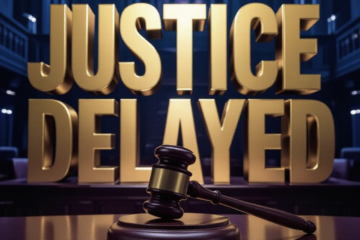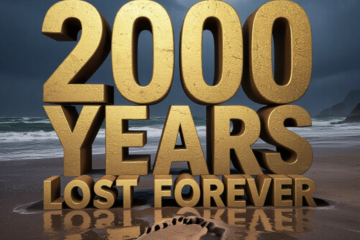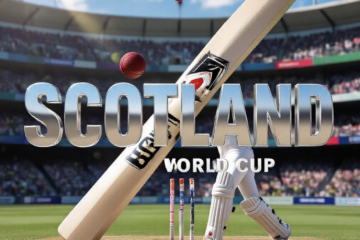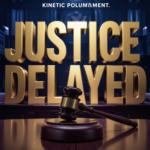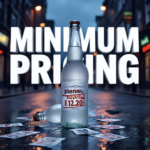Nicola Sturgeon’s new book has re-opened an uncomfortable conversation in Scottish politics: how a seemingly unstoppable independence movement hit the brakes — and whether the Scottish National Party’s own missteps are to blame.
The former first minister’s memoir, Frankly, has attracted sharp reviews and awkward interview moments, offering both her version of history and fresh fodder for critics who say the SNP squandered its advantage.
A Movement That Once Seemed Inevitable
For years, independence was framed as a rising tide — the political equivalent of gravity. Polling regularly showed a near-even split, with support peaking in the aftermath of Brexit. The 2014 referendum may have ended in a “No” vote, but it did little to settle the question.
Now, the SNP’s dominance has cracked, even as support for independence remains stubbornly high. The paradox: the idea is alive, but the party that championed it has lost momentum.

What Sturgeon Says — and Doesn’t Say
In Frankly, Sturgeon accuses predecessor Alex Salmond of neglecting crucial campaign preparation, claiming he was “too busy junketing” to read the independence White Paper before the 2014 vote. She also admits to using the phrase “once in a lifetime” — not the oft-misquoted “once in a generation” — when describing that referendum during her campaign speeches.
It’s a small rhetorical difference with big political implications. Critics have seized on it to argue there’s no public mandate for another vote anytime soon. By her own framing, the next referendum could, in theory, be postponed until the 2090s — a sardonic point she makes against the backdrop of Scotland’s poor health statistics.
One notable absence in her account: a clear roadmap for reigniting the independence drive. For some in the movement, that omission is telling.
SNP Still Scotland’s Largest Party — But That’s Not the Whole Story
Polls still put the SNP ahead of its rivals, with nearly a third of Scottish voters in their corner. In Westminster and Holyrood, it remains a force.
Yet political strength isn’t measured by seat counts alone. The party has bled activists, lost high-profile MPs, and found itself distracted by internal rows and public scandals. Each episode chips away at morale — and momentum, once lost, is hard to recover.
In political terms, the movement has stalled not because Scots stopped wanting independence, but because the machinery driving it has broken down.
Lessons for Other Nationalist Movements
Northern Irish unionists might see a cautionary tale in Scotland’s recent history. If a dominant nationalist party mishandles its mandate, even a cause with deep public roots can stumble.
The lesson is double-edged:
-
A cause isn’t always enough without competent, trusted leadership.
-
But equally, the collapse of one political vehicle doesn’t necessarily end the cause it carried.
History is littered with independence or unification campaigns that survived party implosions, sometimes re-emerging stronger under new banners.
From Unstoppable to Uncertain
It’s hard to overstate how confident the SNP once seemed. Between 2011 and 2021, it strung together electoral victories like clockwork. Brexit, in particular, gave the party fresh momentum, as many Scots saw leaving the EU as a rupture in the UK’s constitutional fabric.
But confidence bred complacency. The strategy for actually delivering independence became muddled — alternating between legal challenges, promises of “next year’s vote,” and vague plans for “building a case” while in government.
The result: a movement that looked busy but wasn’t getting closer to its stated goal.
Independence Support Holds Firm
If there’s a silver lining for pro-independence campaigners, it’s this — public support hasn’t collapsed alongside the SNP’s fortunes. Surveys show roughly the same proportion in favour of leaving the UK as in 2014.
That suggests the idea has hardened into a fixed identity for many voters. Political loyalty may shift, but national allegiance rarely does.
| Polling Year | Support for Independence | Support for Staying in UK |
|---|---|---|
| 2014 | 45% | 55% |
| 2019 | 49% | 51% |
| 2024 | 48% | 52% |
The numbers explain why some within the movement believe the SNP’s slump is temporary — and why unionists can’t count on the current stalemate to last forever.
A Mixed Legacy
For Sturgeon, the book is both a defence and an explanation. She paints herself as a leader balancing governing Scotland with advancing a constitutional project, all while facing headwinds from London and internal party politics.
Her critics see a different story: a leader who let process substitute for progress, and who, despite political skill, never found a viable path to a second referendum.
Either way, her tenure leaves a complicated inheritance — an independence cause as strong in principle as ever, but without a clear champion to drive it forward.

